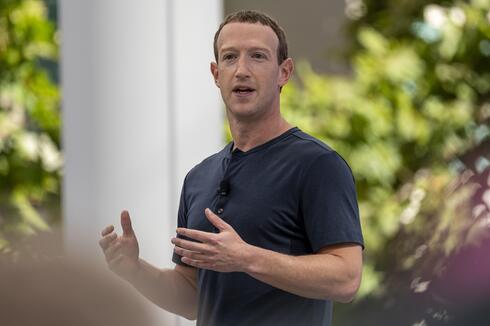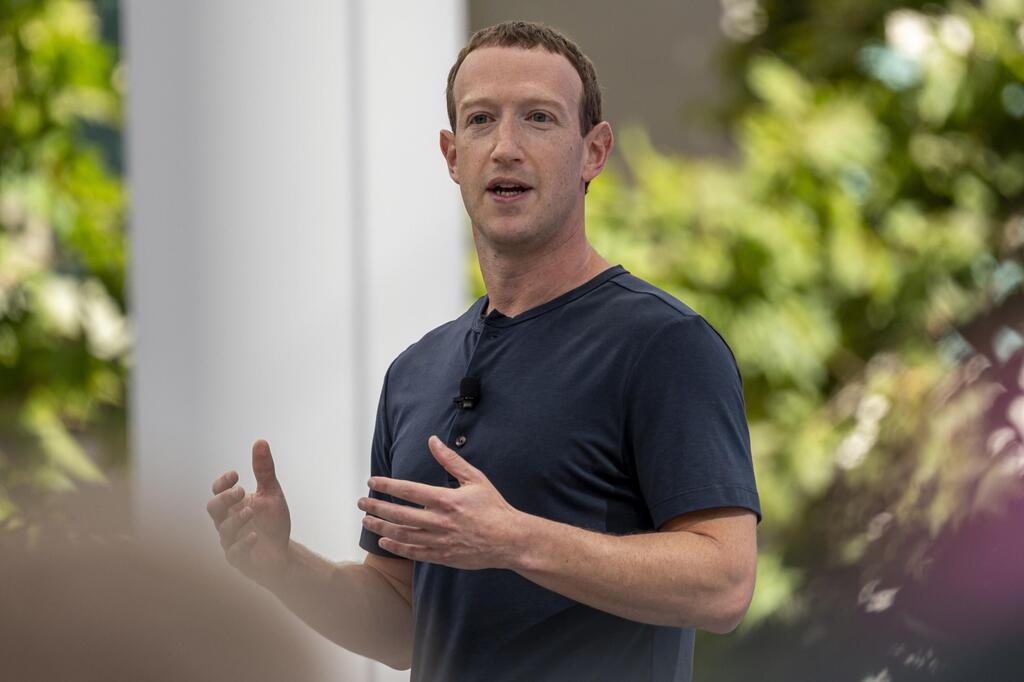
Facebook turns 20: Is it time to say goodbye to Zuckerberg?
Facebook turns 20: Is it time to say goodbye to Zuckerberg?
Among the tech giants, Facebook-turned-Meta is the only one whose founder still serves as CEO. Mark Zuckerberg created a company that changed the world, a monster that reached a peak value of more than a trillion dollars and over 3 billion active users, but if Meta wants to continue to dominate, it needs a new vision and especially a new CEO
Among the giants of technology, and in particular those founded at the end of the 20th century and the beginning of the 21st century, there is a prominent feature that distinguishes Meta. The parent company of Facebook, still the largest social network in the world, is the only one whose founder still holds the position of CEO. Bill Gates retired as CEO of Microsoft in 2000, Steve Jobs parted ways with Apple in 2011 (months before his death), Larry Page and Sergey Brin left the leadership of Google in 2019, Jeff Bezos walked away from Amazon two years ago, and Reed Hastings left Netflix last year.
But Mark Zuckerberg is still firmly attached to the throne of Meta CEO, and shows no signs that he intends to step down from it. And as the social network celebrates today, on February 4, 20 years since its establishment, one has no choice but to wonder: has he been there too long, and is his current vision for one of the most influential companies in the history of the human race a vision that betters society?
Facebook began its journey in the student dormitories at Harvard, in a moment that has been etched in the collective memory through the film of screenwriter Aaron Sorkin and director David Fincher, "The Social Network" from 2010. The casualness and impromptu manner in which Zuckerberg decides to start a company and distribute shares to his fellow founders are part of the company's ethos and narrative, embodied in the motto "move fast and break things". This world view, to act now and deal with the results later, has become one of the characteristics identified with Facebook in the last 20 years, and the source of the many problems it and we have had to deal with.
But there is another scene that characterizes the identity of Facebook well, when Zuckerberg and his colleague Eduardo Saverin meet with the person who will later become the president of Facebook Sean Parker (played by Justin Timberlake). "A million dollars is not cool," Parker tells them. "Do you know what is cool? A billion dollars." And that's the other part of Facebook's culture. Any goal you've reached isn't nearly as cool as the next big goal. When Facebook was worth a billion dollars, it was no longer cool. Cool became $100 billion. And when it reached that destination? One trillion dollars became cool. And of course, now even a trillion dollars is no longer cool.
Despite the scandals, stronger than ever
Facebook's constant pursuit of growth, along with the improvisational culture that has characterized it since its founding, are the shaping forces of the company in the last 20 years, and as a result of the scope of its influence the shaping forces of modern, digital and offline cultures as we know them today. Over the past 20 years, Facebook/Meta has been eulogized many times, proving its immunity and durability an equal number of times. Cash-rich rivals like Google, world-shaking scandals like Cambridge Analytica, an economic crisis that led to a business decline and a plummeting stock—none of these broke it or moved it from its dominant position in social media. Today, after all the crises, the scandals, the constant prophecies about the abandonment of young people, the comprehensive waves of layoffs from 2022-2023, Facebook is stronger than ever, with a stock at an all-time high after completing an impressive recovery from the low to which it fell in November 2022.
But beneath the shiny exterior many deep problems still simmer. Despite efforts, sincere or not, Facebook and Meta's latest platforms still struggle to deal with inflammatory, hateful, fake and terrorist content - a difficulty that became clear in the weeks after the October 7 attack on Israel, when the platforms suffered an increase in inflammatory and anti-Semitic content. Compared to what happened at X (formerly Twitter), Meta's situation may seem good (and this relative situation also allowed it to try and tail X with the launch of Threads last year), but the problems are still there, and still affect and distort the perception of reality for many.
These problems, as well as issues such as antitrust and dominance in the digital advertising market, are also at the root of investigations and regulatory lawsuits that Meta is dealing with. The most prominent of them: a lawsuit filed against it by the FTC (Federal Trade Commission in the U.S.) and centered on a demand to retroactively cancel the purchases of WhatsApp and Instagram and to separate the two platforms - which are responsible for a major part of Meta's growth in recent years and are a key factor in retaining young users - into separate companies.
However, even though this is not a threat that should be taken lightly, Meta has already demonstrated in the past an excellent ability to fend off regulatory pressures, as in the case of the Cambridge Analytica affair, one of the largest privacy scandals in history, which ended in a $5 billion fine - nothing more than a slap on the hand. The stock reacted with an increase when the details of the settlement were published. It is more than likely that it will survive this ordeal as well.
The problems that should bother Facebook/Meta more at the beginning of its third decade of existence come from elsewhere, and are largely related to its leader. As far as the competition is concerned, Meta manages to maintain its position mainly thanks to its past successes, smart acquisitions or the ability to quickly and successfully copy from the competitors. It has not launched a new original product in about a decade, and most of its key actions are more of a reaction to market competition than an attempt to chart an original new path.
Stories are an imitation of a similar format on Snapchat. The Reels format is a response to the massive success of TikTok, which is still the biggest threat to Meta dominance. Even Threads, the most prominently differentiated app that Meta has launched in recent years, is nothing more than a copy-and-paste of X with some modifications, and an attempt to leverage a slump in the competing platform's image.
On the other hand, attempts to chart the way in new fields have struggled to take off. Meta's most notable move in recent years is, well, Meta. The branding change led by Zuckerberg from Facebook to Meta at the end of 2021 was intended to mark a bold vision for the coming years: investment, development, promotion and construction of the Metaverse - a virtual space based on virtual reality (VR) or augmented reality (AR) capabilities that will be a center for social, professional, entertainment, tourist, business, sports and more. Meta has since poured billions of dollars into this vision, and intends to pour many more to make it a reality.
Investors and consumers, meanwhile, have shown little enthusiasm. The revenues of the company's Metatverse division, which are also small in scope compared to the rest of the company, are on the decline. And the market reacted to the strategic plan with a sharp drop in the share price. Although this was fueled also in light of the economic crisis and the damage to the digital advertising market, it largely reflected the lack of confidence in Zuckerberg's vision.
Meta closed its first 20 years with a quarterly report that resonated the best days of the company, and symbolized the end of the financial crisis it faced in the second half of 2022. Revenues in the last quarter of 2023 increased by 25% compared to the corresponding quarter in 2022 to $40.11 billion. The streamlining moves, led by extensive layoffs, bore fruit with an 8% drop in expenses. Net profit, meanwhile, jumped 69% to $14.02 billion. The company also published an optimistic forecast for the current quarter, expecting revenues of between $34.5 billion and $37 billion, and against this background, Meta approved, for the first time in its history, a dividend to shareholders of 50 cents per share, announced a $50 billion repurchase of its shares (buyback), and declared that it expects an increase in salary expenses in 2024 as a result of hiring new employees.
What rescued Meta from the crisis was, in the end, not a new and bold vision, not a surprising and brilliant strategic plan, but gray, boring and painful moves of streamlining, layoffs and cutting expenses. "The year of efficiency", as Zuckerberg defined it. But corporate moves can only take you so far. They managed to stabilize Meta for the present and the immediate future. In the long term, for the next 20 years, much more is needed. And one should also ask, is Zuckerberg able to produce the vision that Meta needs for the future ahead?
Zuckerberg is no longer the young student who can in one evening of beer and pizza create a website that will change the world. He is a father of three on the verge of middle age. A whole generation separates him from Meta's desired target audience today, at least two generations from the target audience that the company would like to recruit in the next two decades. Under his leadership Meta did remarkable things, both wonderful and terrible. But it is in its past. These days it seems that it is already having difficulty connecting to the spirit of the times, in being the first to identify the most important trends and becoming a leader. The significant vision he presented - the Metaverse - did not resonate with the general public.
Twenty years is a long time to be in one position. Experienced and successful founders no less than Zuckerberg realized that at a certain point they become a burden on the company, that their entrenchment in the CEO's throne creates a fixation and disconnection that makes it difficult to develop new directions and prevents the company from progressing to its next stage. History proves that in many cases they were also right. Microsoft, Apple and Google - all prospered and in some cases even reinvented themselves after the founder's retirement (Microsoft did indeed falter under Steve Ballmer, but he is of the same generation as Gates and was with the company already in its early years, and therefore in many ways is his direct successor. In Microsoft's case, one must start with the appointment of Satya Nadella in 2014).
It seems that now is the time for Zuckerberg to join them. Not because he was a bad CEO, not because he will fail terribly or make awful mistakes if he stays in the position, but because there are things that those who sit in the same place for too long are no longer able to do. Because if you want to preserve the innovative capacity of Meta/Facebook, it needs someone who has the drive and hunger to prove themselves. If Meta wants to scale new highs in the next 20 years, the first thing it may well need to do is look for a new CEO.















